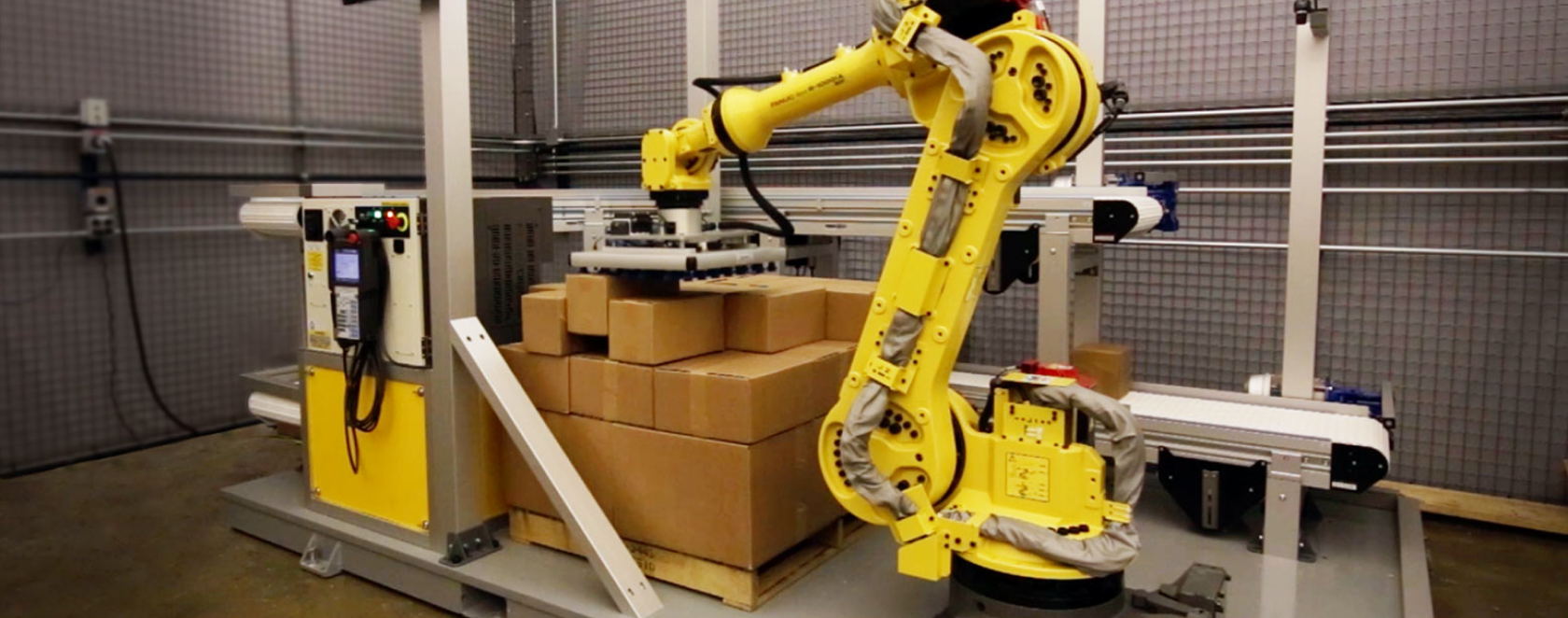
Material handling is one of the critical processes of any factory which mass produces consumer goods. Manufactured items need to be packaged, boxed, palletized, stored, and then retrieved later for dispatch into the supply chain. Material handling, thus, is one of the most work-intensive tasks and manual handling is considered wasteful use of labor in the 21st century. This situation is where automation comes in. Let us take you through why automating material handling at factories is desirable for modern factories.
What is Material Handling?
Simply put, material handling is transporting the materials within the building premises. Materials travel very short distances within the factory/manufacturing facility to the manufacturing area and from there to the storage area. When systemized, this process becomes material handling.
What is the automation of material handling, then?
Instead of human labor, transporting material is now done by machines or robots.
Let us take the example of a car factory. The chassis welding, sealant application, and painting jobs which were done manually before are now done by robots. Basically, come the age of robots and machines would do the heavy lifting and human efforts are saved to other tasks.
Automating processes eases manual labor by delegating the heavy lifting to machines, which are designed to do it for hours without fatigue or breaks. The same person who toiled earlier can now either handle the machine or be employed elsewhere. The worker’s skills’ utilization in other places is an excellent way of building efficient factories of the 21st century.
The monetary aspect may be alluring to some. Robot can achieve much higher throughputs per day. Higher throughput allows factories to produce more and push more goods into the market increasing their market share and profits.
We can also program robots to handle the goods with care and precision. Efficient storage and quick retrieval mean less loss of production. When it comes to labor, a machine will, by design, outperform humans. So, automated machinery offers higher control on quality.
Data access is another reason behind automating your material handling processes. Data is the new oil; tracking the work and its efficiency could mean the difference between life and death for the company. Having numbers, facts, and reports readily available means managers and workers can act quickly and decisively. Factories can adjust their product as per demand.
Lastly, a factory is usually a hazardous place to work due to stacked up boxes and moving and heavy machines. Automating the process would result in only machines being present at the work site. Thus, a robotic solution to your material handling stations would reduce the risk of mishaps, adding safety to the factory.
How do I automate material handling?
Griffyn Robotech, specializes in industrial automation. The company provides custom-made solutions for factories of all sizes and capacities, helping them achieve better production and dispatch. Griffyn Robotech has made processes efficient in India’s factories equipped with state-of-the-art machinery, tools, and robust programming.
We have completed many installations, maintenance, and end-to-end automation projects for various manufacturers working in a diverse range of industries. You may mail to us at contact@phoenix.tech for any queries, and we’ll be glad to answer your questions.
In a Nutshell
Automation is the key to the modern factory of the 21st century. With machinery and AI-powered robotic programming, goods manufacturers can achieve higher throughput and increased manufacturing efficiency. Innovative use of the labor workforce would result in happy workers who drive profitability for their employer. All in all, automating material handling may just be the missing piece of the puzzle for you.

